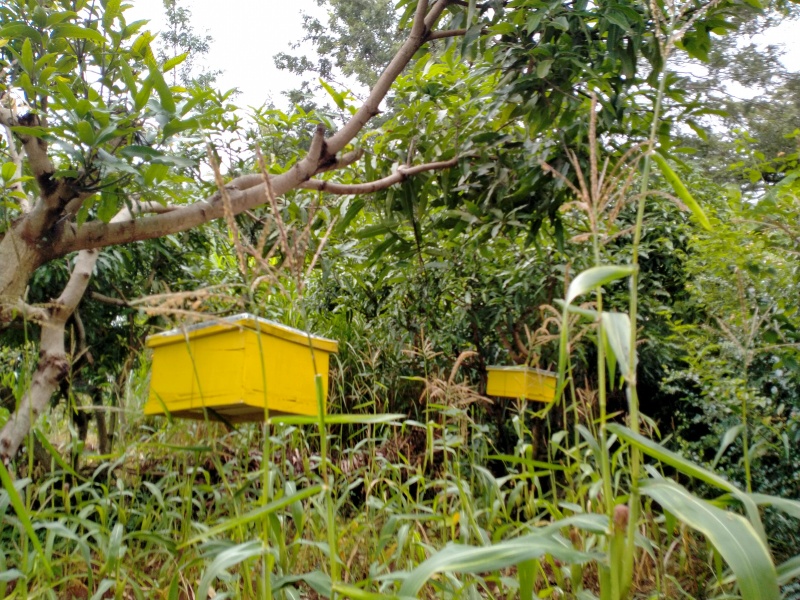The Bee and Tree Project: The micro-credit perspective from Kitui
A rural community in Kitui, a rural village in Kenya have innovatively adopted and incorporated the new PBF Bee and Tree Project in their Micro-Credit program. The KICABA micro Credit group have been supported over the years and are very excited to expand their sustainability activities to include Bee and Tree.
Covid 19 Effects
This new project idea came at the most appropriate time as the effects of Covid 19 pandemic disrupted alot of the usual activities.
When the total lockdown due to the pandemic was was declared, people in towns were forced to return to their villages or remain holed in their houses in towns. Interraction of people had been prohibited and businesses closed down. Groups could not meet and many lost their jobs. We were very fortunate to receive the Bee and Tree funds in time to start this new Project. We organized ourselves into groups and bought modern hives and also improve our traditional hives.

Kitui is a semi savanna land where natives have mastered the art of Beekeeping for survival for years. The new digital technology came to good use especially during the period when movements were restricted. Information was shared and passed through mobile phones and funds were sent to the various group members through our very popular MPESA mobile money tranfer in Kenya.
People managed to adopt new skills and innovatively learnt new businesses and survival tactics. In the absence of government and private sector employment, innovative businesses remain the only hope for communities in this era.
Beneficiaries
- Within the seven (7) months period (August 2020 to February, 2021), a tatol of 46 micro-entrepreneurs accessed micro-credit funds to initiate or expand their businesses. Given the average family size of 7-members per household, it translates to 322 direct beneficiaries.
- The funds created employment during the uncertain period
- Innovative business ideas and businesses were developed
- Economic empowerment throuh income generation for households
- Created an opportunity to re-think viable businesses in a period like COVID-19
Community impact
- Developed community resilience and survival tactics in a COVID-19 era
- People developed saving culture and economical use of resources
- Community cohession has been enhanced- people are more rural rooted
- Closure of many businesses in towns and beginning others in rural villages brought shared entrepreneurship and innovations
- The micro-credit idea and practice was inculturated among the people and continues to serve many households.
- The many micro-entrepreneurs who will not return to towns after relocating in rural areas have increased
- The Tree-Bee-honey project has and will continue rejuvenating the community long honey harvesting practice which nowadays in a source of great income
Way forward
The key to rural development is devolving the resources to rural areas. The shift of populations from towns to villages require more funding from PBF.
The Tree-Bee-honey project can create big market as well as mitigating climate change. This project should be expanded to reach out to traditional beekeepers and modern ones. Honey in Kamba land can become one of the highest earning business and should be promoted.
By Patrick Kutu and Dan Amolo
